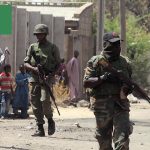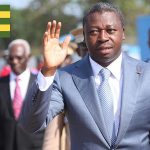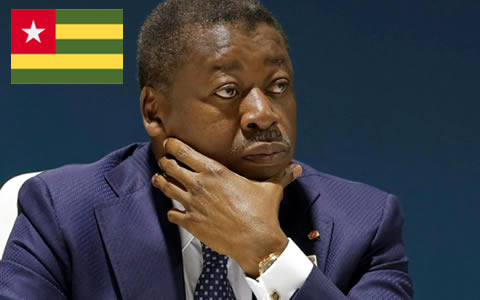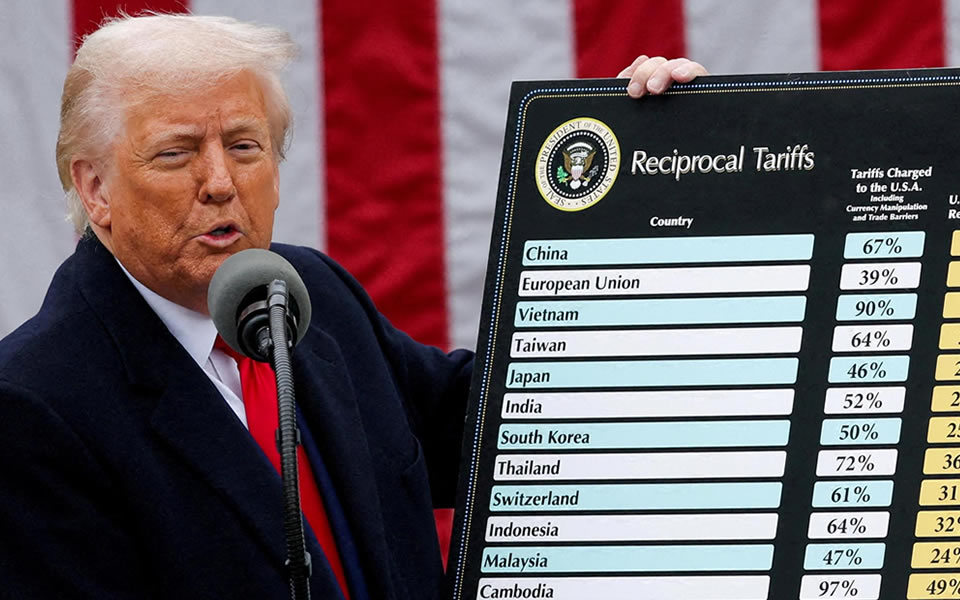
Escalating Banditry in Nigeria: Strategic Implications
April 12, 2024
Constitutional Revisions in Togo: Implications and Forecast
April 19, 2024NIGER: QUARTER 1 2024 ASSESSMENT & FORECAST
Analysts: Khadijah Mustapha
Senior Editor: Magdalena Breyer
What You Should Know
- Security Landscape: Overall security incidents increased by 6.69% and fatalities by 23.38% in Quarter 1 (Q1) of 2024, indicating the increased lethality and worsening humanitarian impacts of violence. There was a significant increase in the use of remote explosives and IEDs by armed groups, which were the most significant contributors to the heightened lethality of conflicts.
-
Socio-political Landscape: Niger's socio-political environment remains complex, marked by evolving regional and international alliances, heightened security threats, and deepening economic strains. The July 2023 coup led to Niger's isolation from traditional partners and the formation of the Alliance of Sahel States (AES) with Burkina Faso and Mali. This period saw Niger further its anti-Western realignment, shifting from its former Western ties towards strengthening regional and Russian partnerships.
-
Q2 Forecast: Niger will likely face growing security challenges from jihadist groups in the Liptako-Gourma and Lake Chad basin regions due to ongoing intra-jihadist rivalries and evolving security partnerships. Details on Niger’s new partnerships will likely emerge, with Africa Corps likely emerging as a key actor in Niger’s counterterrorism efforts. The Niger-Benin oil pipeline will possibly become operational, likely having positive impacts on Niger’s domestic economy through increased government revenue.
Summary of the Socio-Political Landscape
Niger has been managing a complex socio-political environment, marked by shifting alliances and growing security and economic challenges. The July 2023 coup led by General Abdourahamane Tchiani resulted in ECOWAS and other regional bodies imposing sanctions that froze Niger’s assets, halted transactions, and closed borders, severely impacting the economy and exacerbating a humanitarian crisis due to increased food prices and poverty. In response, Niger distanced itself from traditional partners and formed the Alliance of Sahel States (AES) with Burkina Faso and Mali, who have faced similar sanctions following coups. AES shares mutual concerns over regional violence and dissatisfaction with Western involvement, leading to Niger withdrawing from ECOWAS, ending security agreements with the EU, expelling French military forces, and suspending military ties with the US. These moves underline Niger's drive for greater sovereignty and the diversification of its diplomatic and security relationships while addressing internal humanitarian and developmental needs.

Summary of Q1 Security Landscape
Armed Clashes
Looting
Attack
Abduction
Landmine/IED
In Q1 of 2024, Niger’s security landscape was volatile and characterised by significant developments on multiple fronts, very likely worsened by the negative economic impacts of changing geopolitical dynamics. Overall security incidents increased by 6.69% from Quarter 4 (Q4) of 2023, with a notable 23.38% increase in fatalities. Although Tillaberi was the most impacted region with 122 incidents, Maradi (237.5%), Diffa (44%), Tahaoua (5.71%) and Zinder (100%) recorded increased activities from Q4, while other regions reported decreases.
Armed clashes increased by 19.44% mainly between military forces and jihadist insurgents or other armed groups, with less frequent intra-jihadist or jihadist-other group clashes. The use of remote explosives and IEDs by these groups saw the largest increase at 200%, though the negative impact was lessened by a significant 116.67% rise in security efforts to disrupt weapon use. This included 26 unique incidents where forces neutralised IEDs and seized weapons. The increased lethality of Q1 incidents is mainly attributed to three drone strikes targeting militants in the first week of January and the last week of March, followed by three retaliatory armed clashes. These events resulted in 194 deaths from both sides, accounting for 38.27% of all casualties during this period. Islamic State Sahel Province (ISSP), Jama’at Nasl al-Islam wal Muslimin (JNIM), Boko Haram, Islamic State West Africa Province (ISWAP), and unidentified armed groups were the most prominent groups in Niger over this period

Nigerien Prime Minister, Lamine Zeine, meets with US Deputy Secretary Campbell
Attacks increased by 12.5%, primarily perpetuated by unidentified armed groups against civilians, often resulting in casualties and the plundering of victims’ possessions, such as livestock. Economic instability and rapid inflation likely led to the increased targeting of civilian resources as evidenced by the 22.86% increase in looting. Violence against civilians accounted for more than 50% of all incidents as abductions increased by 190.91%, exacerbating the existing humanitarian situation that led to Tillaberi, Tahoua, and Diffa hosting 690,000 displaced persons in January 2024, according to UNHCR.
Q1 Analysis
- The Liptako-Gourma and Lake Chad basin regions posed the greatest security risks to Niger, with incidents rising by 36% from Q4 2023 to Q1 2024 as clashes between Nigerien forces and jihadist groups intensified. The withdrawal of French forces and the uncertainties of new security partnerships likely impaired Niger's counterterrorism efforts in these areas. Jihadist groups engaged in confrontations with unidentified armed groups and local militias, possibly favouring direct tactics like clashes and attacks in the fight over territory and limited resources. Their growing use of asymmetrical weapons, such as remote explosives, possibly increased the volatility of the security situation. ISSP’s territorial expansion likely intensified conflicts with JNIM, impacting civilians and military targets in Tillaberi and Tahoua. ISWAP was the least active jihadist group in Niger, although its ambitions to expand posed a substantial threat to the Diffa region as it competed with Boko Haram for control in the Lake Chad basin. The military’s difficulty to disrupt jihadist violence, despite increasing air strikes and countermeasures to neutralise jihadist weaponry use, likely indicates their challenges in sustaining counterterrorism efforts on multiple fronts.
- Niger diversified its military and security partnerships over the last three months, likely to assert independence from Western influence in its policies. The plan to replace the CFA Franc with an AES currency and unconfirmed reports of restricting French nationals' travel to Niger without Niamey's clearance likely underscore a decisive shift from Western ties. The development of a partnership with Russia, alongside revoking the military agreement with the US and exiting ECOWAS, likely serves to strengthen alternative alliances. Niger’s diplomatic engagement with adversaries of its former allies, such as Iran, possibly serves as an act of symbolic solidarity against unilateral sanctions.
- Niger's diplomatic outreach to West and North African countries is likely aimed at forging new regional alliances and expanding its influence post the July 2023 coup backlash. Engagements with Togo and Morocco on projects like the Lomé-Ouaga-Niamey trade route and the Atlantic Alliance likely indicate a realignment of Niger’s partnerships. These changes likely shaped Niger’s cautious approach after ECOWAS sanctions were lifted and influenced its delayed border reopenings with Nigeria and Benin. New agreements like the AES diesel supply agreement with non-AES Togo are possibly designed to secure political support for the AES through trade dependencies.

Q2-Q4 Forecasts
- Over the next three months, security incidents will likely increase amid ongoing intra-jihadist rivalries. Jihadist groups will likely loot civilian, government, and military resources to replenish their supplies, likely targeting the new Niger-Benin pipeline. The conflict between ISSP and JNIM in the Liptako-Gourma area is likely to escalate as both seek to expand in this key region, posing increased threats to Tillaberi and Tahoua. The conflict between ISWAP and Boko Haram will likely extend into Maradi, possibly intensifying as ISWAP leverages its Ansaru network connections in northeastern Nigeria.
- The evolving diplomatic and military partnerships are likely to temporarily complicate Niger's security dynamics, hindering the effectiveness and responsiveness of security operations in vulnerable regions. Military strategies will likely remain uncertain as adjustments are made to align with new alliances and partners' capabilities. Details of Niger's partnership with Russia will likely emerge in Q1, giving insight into the role of Africa Corps and the structure of Russia’s private military in the Sahel. The alliance with Russia will likely increase tension with Niger's remaining Western security partners, given the ongoing Russia-Ukraine conflict.
- Details of Niger's developing bilateral and multilateral agreements, individually and as part of AES, will likely become clearer, possibly threatening regional integration under the banner of ECOWAS. It is likely that developments in Q2 will provide ECOWAS with a clearer understanding of Niger’s intent to withdraw. The suspension of defence budget oversight and controls in Q1 possibly indicates that the junta intends to remain in power for an extended period. It is possible that Niger is fostering new relationships to strengthen its ability to negotiate ECOWAS membership terms without returning to civilian rule.
- Niger's economy will possibly stabilise over the course of Q2 and Q3, likely because of lifted sanctions and revenue from the Niger-Benin pipeline. Long-term economic benefits from pipeline revenue are unlikely without structural adjustments. Despite African Development Bank’s (AfDB) positive growth projections for the country, climate change and insecurity will likely continue posing significant threats to long-term stability. Ongoing regional tension with Benin will possibly delay oil exports through the new pipeline expected to be operational in Q2. Inflation and structural poverty will likely dampen the fiscal benefits of increased revenue from the pipeline.



